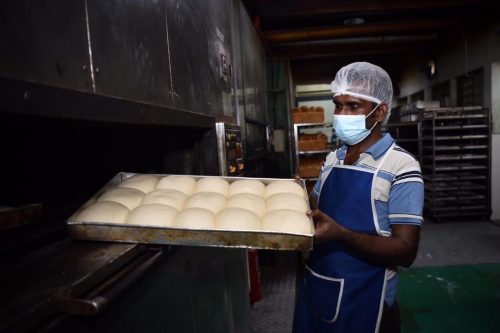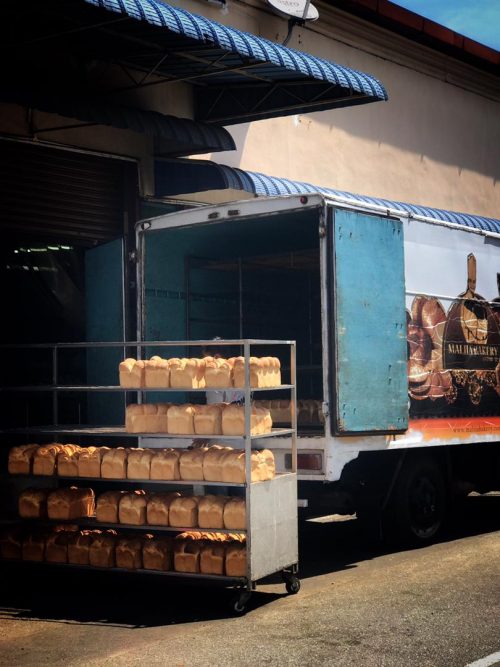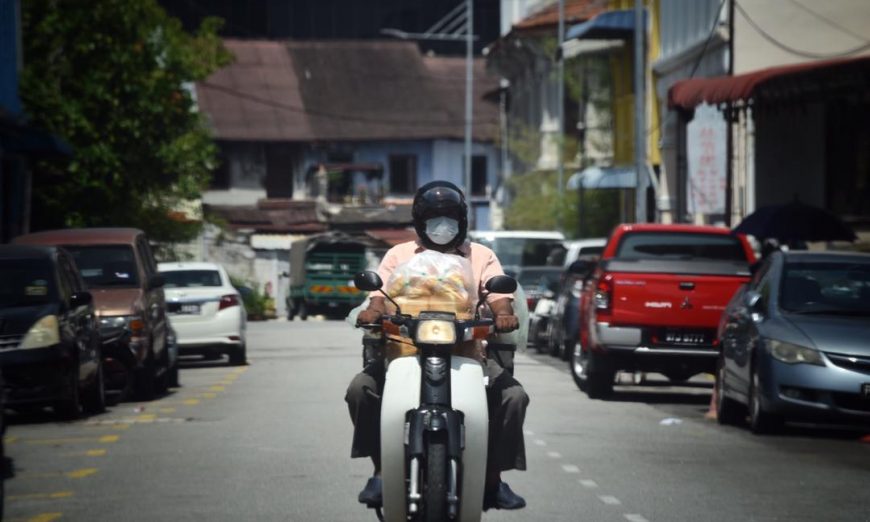THE ‘Rotimen’ a.k.a. bread vendors, who we see frequently in our neighbourhood, are staying resilient despite being affected economically during this Covid-19 pandemic season.
A 71-year-old bread vendor, KP Chandrasekaran was seen carrying trays of Bengali bread or ‘roti Bengali’ and buns to be put inside his ‘bread crate’ when Buletin Mutiara approached him for an interview recently.
The tired-looking yet strong-willed Chandrasekaran, who has been a bread vendor for 30 years, lamented that business has been sluggish due to the ongoing movement control order (MCO).
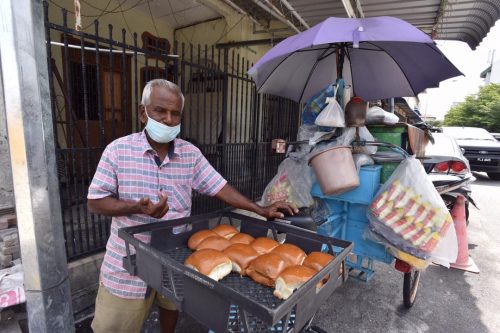
“Every day, I will start off my business at the Kajang Road Market. Then, I will go around the Little India area as well as to other places.
‘It is difficult to sell all my bakery items as there are fewer people now on the streets. So, I have reduced the number of bread loaves and buns that I usually take from the bakery.
“For instance, I normally take some loaves of ‘roti Bengali’, buns and bakery confectionery which would cost around RM120 but now I am taking about half of that,’’ said Chandrasekaran.
Chandrasekaran hopes that the Federal or the state government would assist bread vendors who are facing a similar situation as him.
“Before the pandemic, we could earn a decent living. Now, it has created a ‘chaos’ financially for people like me who depend on daily wages.
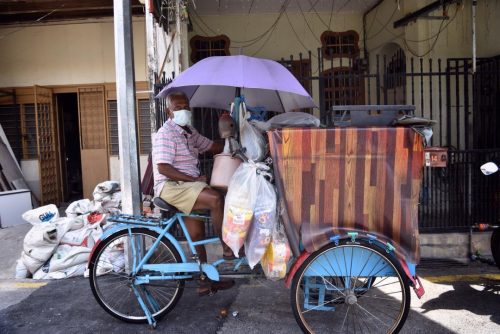
“So, I hope that the state or Federal government would look into our plight by giving us financial aid till the situation becomes better.
“Till then, I have to keep running,” he said, adding that he has a daughter who is still unemployed.
Another bread vendor, who only wants to be known as Dintu, 24, relies heavily on his regular customers as he makes his rounds in Little India.
“I do not go outside of Little India; the farthest would be the Weld Quay area. Bread vendors actually have their respective areas to cover. If we cover the same area, we do it at different times.
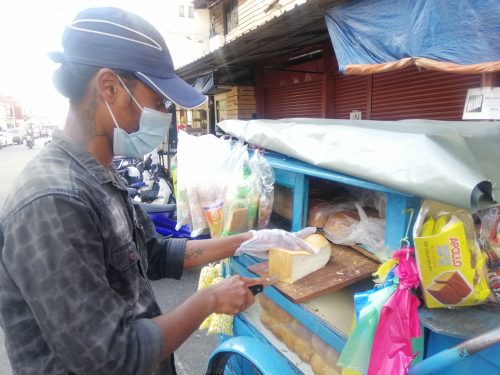
“Before the MCO, the sales range from RM200 to RM250 but now it has dropped to about RM110 to RM130 per day.
“Since no outsiders are coming in frequently, I fully bank on my regular customers. They are mostly the traders and working people from nearby companies,’’ said Dintu.
Dintu said those who distribute bread to residential areas might fare better than those bread vendors who only make their rounds at certain places.
“I believe those bread vendors who go from house to house to deliver bread would generate slightly better income than us,’’ he added.
Meanwhile, Maliia Bakery chief executive officer Kumaresan Mariadas said though his business has dropped by almost 40%, the outlet is still coping with it.

“Since this is an essential food, we still have demand. However, it is much less than before.
“Prior to the MCO, we produced some 1,000 loaves of ‘Roti Bengali’ but now it has been slashed to 600 to 700 loaves per day.
“Our walk-in customers have also decreased by 50%,’’ said Kumaresan during an interview at his office in Transfer Road.
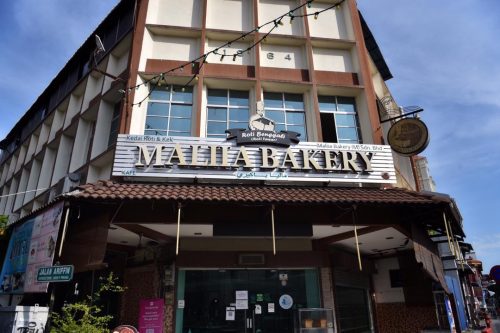
According to Kumaresan, the production would begin in the wee hours and would stop in the afternoon.
“Our production would take eight to 10 hours on usual days but since the MCO, we have cut down on the production from six to eight hours.
“Our business hour is from 7am till 8pm or 9pm but if there is no MCO, we normally close at 11pm.
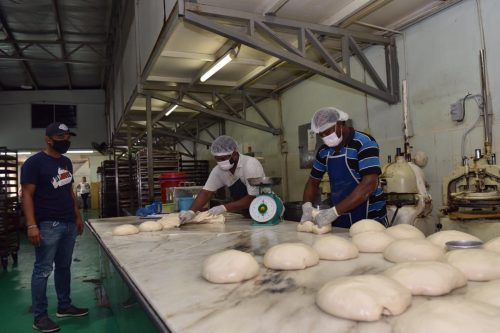
“So far, we are able to sustain our business. But the next two weeks will be really tough and let us see how well we can handle it.
“Things were so much better during the CMCO (conditional movement control order) and RMCO (recovery movement control order),’’ he added.
Kumaresan also added that there a total of 50 bread vendors, both on island and mainland, distributing his bakery products at their respective localities.
Story by Tanushalini Moroter
Pix by Darwina Mohd Daud
